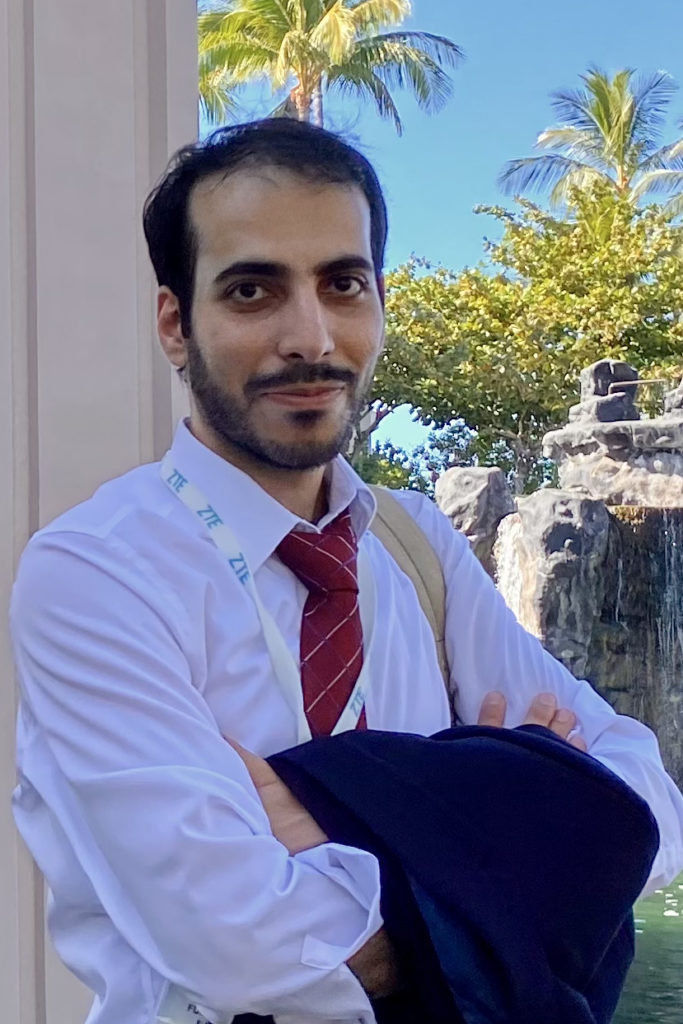Using neural networks and machine learning to design the first universal decoder for the next generation of wireless systems

Mohammad Vahid Jamali, an ECE doctoral student, has been awarded a Qualcomm Innovation Fellowship for a project that aims to use neural networks and machine learning to develop a new universal decoder to support the next generation of wireless systems.
“The nature of this research is so fascinating as it combines advanced mathematical ideas from coding theory with creative ideas in deep learning,” says Jamali.
Decoders are tools that help provide reliable communications for all types of wireless networks. However, most decoders are limited to a specific types of channel codes and often don’t support the next generation of wireless systems.
For instance, the current generation of mobile phones that support new radio (NR) 5G still need to accommodate legacy LTE and 3G standards, but each rely on codes with totally different decoding algorithms. As a result, they each require different hardware, which increases both the size and cost of the receivers. Jamali is hoping to change that by creating a single neural decoder that can decode several channel codes at once.
“The impact of this research project is simply vast,” he says.
So far, Jamali and his team members have succeeded in using machine learning and neural networks to design decoders for certain classes of codes. Now, they’re hoping to create the first ever universal decoder that can work for multiple codes, which will be sorely needed as the world becomes more reliant on wireless systems, including autonomous cars and an ever-expanding Internet of Things.
“Typically, the research that we do is more theoretical, but with this project, we have an opportunity to have an immediate impact on the technology,” says Prof. Hessam Mahdavifar, who’s advising the project. “That’s the most exciting aspect of this project for us.”
Qualcomm has long been a world leader in wireless technology innovation. They created the Innovation Fellowship to recognize, reward, and mentor innovative PhD students, and they receive over hundred proposals every year.
 MENU
MENU 
